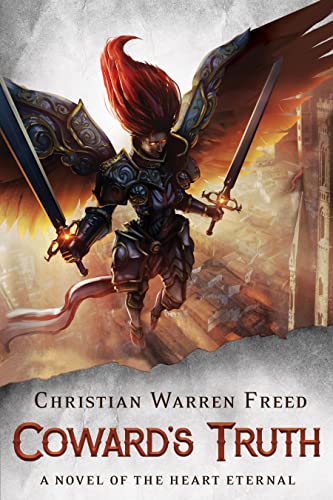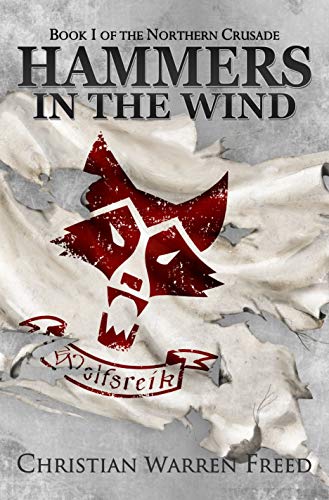Do You Know Enough About Copywrite Law as an Author?
Understanding Copyright Law
The time has finally arrived. The culminating moment every author dreams of. That day when you hit publish and present your book to the world for the first time. Countless hours and energy have gone into the creation, development, and polishing of the most important creation of your life. Months, perhaps years of frustrations and opposing emotions collide the instant submission confirmation flashes across the screen. At long last your book is published, but have you done everything necessary to ensure you are legally protected? Chances are, no. Every creative thinking of presenting their work to the world should have a rudimentary understanding of copyright laws, fair use, and the slew of side angles with the ability to present issues for both author and publisher.
An estimated one million books are published each year, this thanks in large part to the rise of the digital age. Amazon, once touted as the world’s largest bookstore, boasts a catalog of over ten million titles for sale on their site. Anyone with a computer now has the ability to publish their books- forgoing the once stalwart gatekeepers in New York City. The Big 5 publishers once maintained rigid quality control over the book industry. This is not to suggest they only selected the very best books each year but rather were meticulous when it came to editing, cover design, and presentation of the final product. And covering legal matters.
The importance of quality control extended to every facet of the industry. Each major publisher had (and still has) legal teams in place for any eventuality. Writing a book may be easy but doing so flawlessly and in a manner that will not return to haunt the author is just as important. A myriad of potential legal issues can arise during publication and the major houses are able to prevent them.
Now that publishing has changed, the gatekeepers are relegated to the sidelines by the ability to self-publish. Authors are on left their own. Digitization may have permanently changed the world, but not every change has been easy or done with the best of intentions. By publishing your own work, you take full control of the outcome while being left without the support structure necessary to become successful.
The sad fact today is that most independent authors and small publishers fail to understand the laws that are put in place to protect them. The internet has made life easier by every measure, but it has also given rise to numerous issues, foremost is illegal copies of books being distributed to those unwilling to pay. Piracy and illegally reselling books may not be a new trend, decades ago paperbacks once had the disclaimer that books could not be sold without the covers, but it is one that continues to grow at an alarming rate.
Understanding copyright law
The biggest failing independent authors face is they often (but not always) do not view their books as a business. In truth, every task in the process requires business minded aspects if any measure of quantifiable success can be measured. Professional covers need to be created. Manuscripts must be edited. Every book needs quality marketing starting before publication. Writing is business and any business worthy of the name needs to know what laws protect them and where they might go awry.
Copyright law and intellectual property laws were intended to promote creativity while protecting (to extent) the creative’s unique works. Without these laws there would be no financial gain for any creative, potentially negating the desire to produce content. This is not to suggest the laws are easy to decipher. Nuance is necessary when it comes to understanding how a court ruled on this topic or that, especially when it comes to fair use.
There are numerous legal cases within the last few decades revolving around fair use. Most notably was the protestation of multiple musicians during the 2016 presidential elections where the artists demanded the Trump campaign stop using their songs. A photographer lost a case in March of 2019 when she tried to prevent one political party from using her images for their means citing copyright infringement. A federal judge ruled her work fell under the fair use arena and the images could be used as seen fit. Not the outcome the photographer wanted because the ruling represented a loss of control over her creation.
The issues of copyright infringement and intellectual property law are becoming more prevalent in the publishing industry as independent authors and small market publishers continue to grow in numbers. The risk of illegally using portions of another’s work or images without consent are on the rise. This can be either a character’s name or something less insidious.
Think about how many books you have read where the character recites lines from a popular song. Without expression consent from the song’s creator this is illegal. Regardless that there was no ill intent in the act, the author more than likely did not ask for permission- and pay a royalty fee- from the musician. Using band names is fine, as is a song title, but that is where the line ends unless you have paid for the right to use the lyrics.
The same is applicable to book cover design. Numerous websites exist where premade book covers can be purchased, but a closer look shows a great many of these covers contain the same central image- with a slightly different background. At what point does this constitute copyright infringement? Additionally, some bigger name sites like Google and Amazon now offer portions of books for free through their various platforms, circumventing the rights of the author and publisher for royalties.
Legal ramifications of the latter are discussed in depth with Authors Guild v Google. In late 2015 several authors sued Google for illegally giving away parts of their books online. The court ultimately ruled in Google’s favor however due to several mitigating factors. The most prominent of these was that Google not provide ‘significant market substitute for the protected aspects of the originals, and defendant’s commercial nature and profit motivation did not justify denial of fair use.’ The court also linked Google’s case to that of public libraries and their ability to lend books to readers free of charge.
Understanding this, the real question is what rights do you have as an author or small publisher?
RELATED BLOGS

PREVIEW: COWARD’S TRUTH: A NOVEL OF THE HEART.
One of my more recent ideas, this one involves a squad of space marines crash landing on a gunpowder.

PREVIEW: HAMMERS IN THE WIND
By far my most successful book, with over 650 reviews and counting, this one is a bit Viking and.

